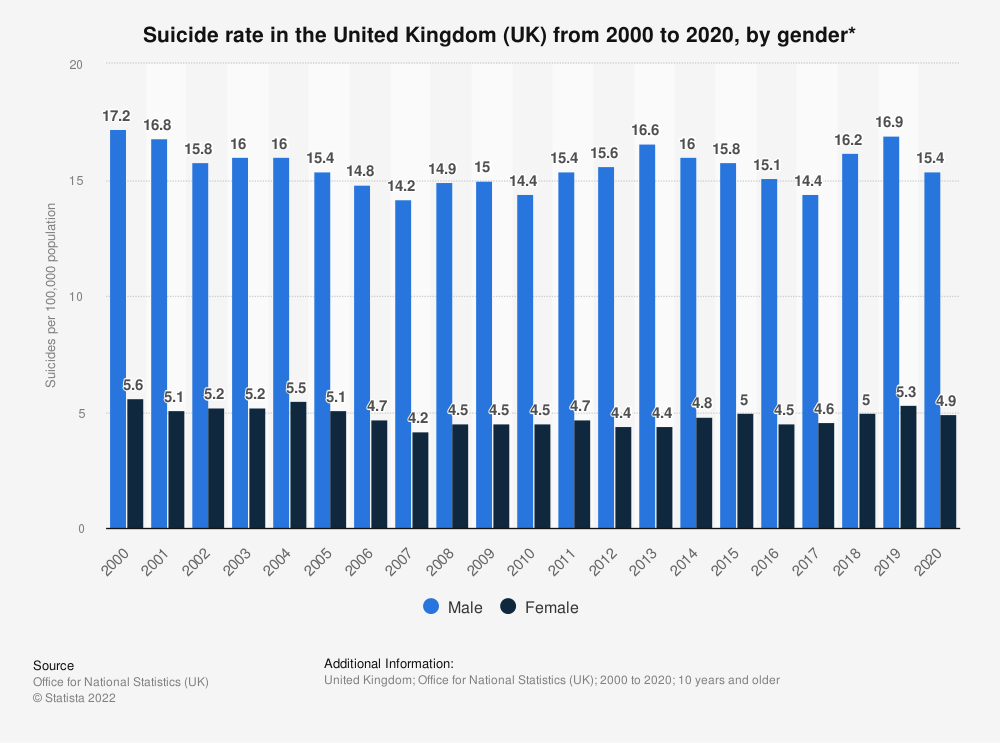When most people hear the words “National Men’s Health Week,” they probably don’t think about men’s mental health.
However, given that men are nearly four times more likely to die by suicide than women, it is important to bring awareness to their emotional well-being. Men’s Mental health includes emotional, psychological and social well-being.
It determines how we think, feel and act in response to life’s challenges. Mental health is not a one-size-fits-all approach because each person is unique with different personalities, experiences and backgrounds.
Since this week is National Men’s Health Week, we will explore some of the reasons why men may be less likely to seek help for their mental health compared to women as well as some of the barriers that exist for them in therapy.
We will also discuss ways that both therapists and men seeking therapy can work together in order to create an empowering therapeutic experience

Men are more likely to die by suicide than women.
The Centers for Disease Control and Prevention reports that men are about four times more likely to commit suicide than women, which means that roughly 75% of all suicides in the U.S. involve male victims.
It’s important to understand why this is, so we can better help people who are struggling with suicidal thoughts or feelings—and perhaps reduce the number of deaths from suicide overall.
According to Dr John Draper, director of the National Suicide Prevention Lifeline (NSPL), one factor is that men tend to be less willing than women to seek help for mental health issues:
“The data shows us there’s a big disparity between males and females when it comes to seeking assistance,” says Dr Draper.”We know that males tend not only take their lives more often but also experience depression and other mental disorders at higher rates than women.”

Stigma and the role of the therapist in men’s mental health
Men are significantly less likely than women to seek treatment for their mental health. There are many reasons for this, but the most common is that men tend to be more reluctant about asking for help. This can be due to a number of factors including:
- Men may have been taught from an early age that they should not express their emotions or show weakness. This can make it difficult for them to reach out when they need support.
- Men also tend to experience more shame around seeking therapy than women do and therefore may avoid discussing their problems with others in order to avoid feeling embarrassed or ashamed of themselves (i.e., having people think poorly of them).
- Finally, there tends to be less stigma associated with female mental illness than with male mental illness so women often feel like they have better support systems available than men do (with friends/family etc.)

How psychotherapy can help
Psychotherapy can help you to understand yourself better and to learn how to manage your emotions. It can also help you to manage your relationships and life in general, as well as stress.
If you have been struggling with the following issues:
- feeling depressed or anxious often
- having trouble sleeping
- feeling hopeless about the future
- being irritable a lot of the time
Please book an appointment with one of our assessors to comprehend how we can support you, our therapists are skilled to provide men’s mental health support.
Conclusion
We hope that this article has provided helpful information about seeking mental health treatment for men. We encourage you to reach out if you have questions about seeking therapy or finding a therapist who is right for you.
